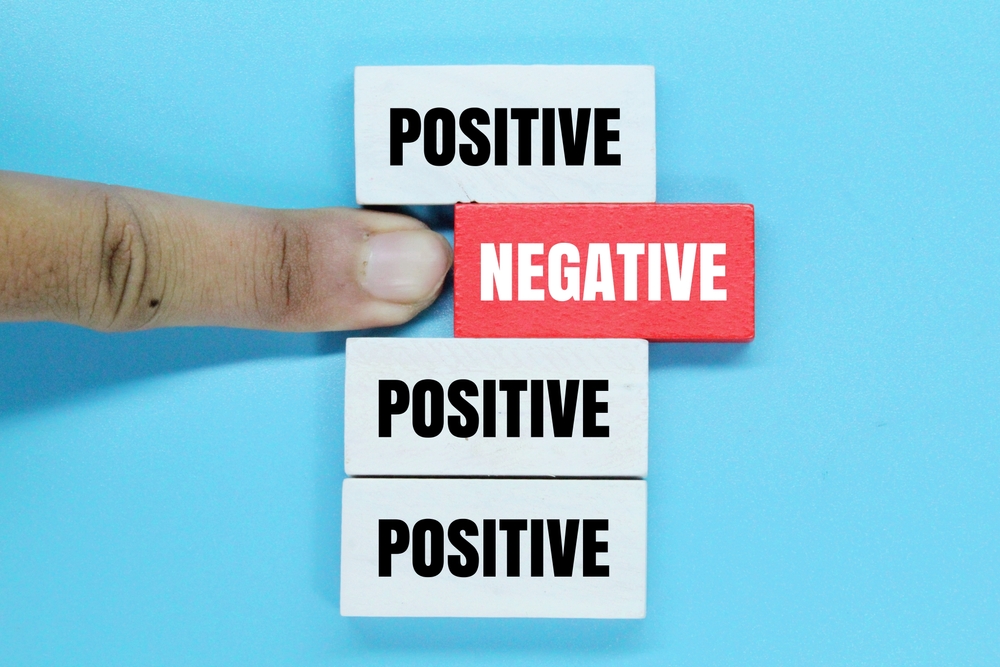Your cart is currently empty!
How to Protect Yourself From Negative Energy

Energy. It’s a word that, even now, after years of working as an energy healer, channeler, and spiritual intuitive, still sounds a bit “new age” to me. But energy isn’t some far-out concept; it’s much simpler than you might think. In fact, understanding energy can make a profound difference in your daily life, helping you navigate the emotions and thoughts swirling around you.
Let me break it down: energy, in its simplest form, refers to free-floating emotions and thoughts. That’s it. It’s not some mysterious force; it’s the emotional and mental vibrations that exist all around us, influencing how we feel without us even realizing it. This knowledge has been used by healers like myself to understand the hidden dynamics of how energy affects us, whether positively or negatively. And the more you learn about it, the more empowered you become in managing your own emotional landscape.

What Is Energy?
Energy, at its core, is far more than a buzzword—it’s the unseen but very real force that flows around us all the time. Imagine energy as free-floating emotions and thoughts, constantly shifting and moving between people and places. This may sound simple, but its effects can be incredibly powerful. Think about a time when you were in a fantastic mood, full of positivity, only to walk into a room and suddenly feel on edge or even irritable for no apparent reason. That’s the impact of energy, and most of the time, we’re unaware of its influence.
You might have picked up someone else’s emotional residue—a free-floating thought or feeling—that seeped into your personal space. Before I truly understood energy, these sudden shifts affected me deeply, often leading to anxiety, mood swings, and even depression. It wasn’t until I began to study and recognize energy’s role in our lives that I realized these shifts were often caused by external forces rather than something within me.
The beauty of understanding energy is that it empowers you to protect yourself from these external influences. Once you grasp that energy is everywhere, constantly interacting with you, it becomes easier to spot when you’re absorbing feelings or emotions that aren’t yours. With awareness, you can take control, clear your space, and prevent yourself from being overwhelmed by energy that doesn’t belong to you. This simple realization can dramatically shift how you navigate emotional ups and downs, allowing you to feel more balanced and centered in your daily life.
Personal Journey: Understanding Energy and Its Effects
In 2009, my life took an unexpected turn when I developed the ability to see energy, auras, angels, and spirit guides with my own eyes. This newfound vision pushed me to dive deeper into the world of energy and understand how it operates. Suddenly, I could literally see the energy fields that influence how we feel and behave. It was eye-opening to realize that many of the sudden mood shifts I experienced weren’t random—they were caused by other people’s energy entering my own personal space, what I like to call my “snow globe.”
Imagine your consciousness as a snow globe, with free-floating emotions and thoughts swirling around like snowflakes. When someone else’s energy enters your snow globe, your brain begins processing it as if it’s your own. This explained so much about why I would walk into a space and suddenly feel anxious, angry, or sad without any clear reason. My brain was interpreting other people’s energy as my own, leading to emotional confusion and distress.
As I became more aware of this, it dawned on me that energy can have a far greater impact on our mental health than we realize. For years, I struggled with depression and anxiety, never suspecting that much of it was due to absorbing other people’s emotions. Learning to differentiate between my own energy and the energy of others was a game-changer. It empowered me to protect my emotional well-being and gave me tools to regain control over my mental state. Understanding this dynamic has become essential not only for my own healing but also for helping others manage the invisible forces that shape their emotions.

Example of Absorbing Negative Energy
Let me illustrate how absorbing someone else’s energy can completely shift your mood, often without you even realizing it. Imagine it’s date night, and everything is going great—you’re in a fantastic mood, excited to spend time with your partner. But just before the movie starts, you realize you’ve run out of butter for the popcorn, so you head out to the store. As you happily pick up the butter and get ready to check out, you’re rung up by a cashier who doesn’t say much, but unbeknownst to you, she’s dealing with serious personal issues. Her spouse is furious with her, and although she doesn’t tell you this, her energy is radiating anger and frustration.
You leave the store without thinking much about it, but as you head home, you start to feel uneasy. The moment you walk through the door, you’re hit with a nagging feeling that your partner is upset with you. Suddenly, your mind starts racing—Did I take too long? Did I buy the wrong butter? Your brain even dredges up an old memory of a time when you were late for a date, and your former partner got angry with you. Before you know it, you’re feeling anxious, defensive, and on edge, convinced that something is wrong. All the while, your partner is completely fine, waiting happily for you to start the movie.
What’s happening here is that the energy from the cashier—her frustration and anger—has entered your “snow globe.” Your mind, doing its job of trying to make sense of the energy, has mistaken it for your own emotions and started looking for reasons why you might be feeling this way. As a result, you’re now experiencing someone else’s energy as if it’s yours, causing unnecessary stress and conflict in a situation where everything was actually fine.
This phenomenon happens more often than you might think. It’s how many misunderstandings, arguments, and even fights begin, especially in close relationships. We unknowingly absorb other people’s emotions, and our brains try to find logical reasons for why we feel the way we do. Without realizing that these feelings don’t belong to us, we can create problems where there aren’t any, turning what should have been a peaceful evening into a tense, uncomfortable one.
The Domino Effect of Negative Energy
When we unknowingly absorb someone else’s negative energy, it can set off a domino effect that escalates quickly. This phenomenon doesn’t just affect romantic relationships but extends to families, workplaces, and friendships. The smallest assumption, based on an emotional “gut feeling,” can spiral into a much bigger misunderstanding if it’s not recognized and addressed. The problem arises when we accept these absorbed feelings as our own, allowing them to influence our thoughts, actions, and reactions.
Let’s go back to the couple on their date night. If the person who went to buy butter doesn’t quickly realize that the negative feeling they brought home is actually from the cashier, the evening could take a downward turn. They might give their partner the silent treatment, believing they’re mad at them for some unknown reason. The partner, in turn, might start to wonder what they’ve done wrong. Perhaps they’ll think they’ve said or done something to upset their partner, and soon both people are walking on eggshells, their minds working overtime to figure out why the other is upset.
This kind of energy transfer happens all the time in workplaces as well. Imagine a coworker who comes in already stressed from their personal life. Their energy might feel tense or irritable, and without realizing it, you might absorb that energy, leading you to feel on edge. You start interpreting your coworker’s actions or words through this emotional lens, assuming they’re upset with you or someone else in the office. As a result, interactions that could have been simple and straightforward turn into moments of frustration or conflict, all because the energy being absorbed is creating assumptions and miscommunication.
These misunderstandings, based on absorbed emotions, often become the root of unnecessary arguments and resentment. It’s easy to see how a simple energetic miscommunication can cause a ripple effect, leading to bigger issues over time. Whether between lovers, friends, or colleagues, the key to preventing this domino effect is awareness. Recognizing when the energy you’re feeling doesn’t belong to you is the first step toward breaking the cycle and avoiding unnecessary conflict.

Empathic Sensitivity and Its Challenges
Many people, particularly those under the age of 65, are empathic to some degree, meaning they have a heightened sensitivity to the emotions and energy of others. This ability to feel what others are feeling can be a powerful gift, but it comes with its own set of challenges. Empaths are like emotional sponges, often absorbing the moods and energy around them without realizing it. While this sensitivity can allow them to connect deeply with others, it can also lead to emotional overload, confusion, and even burnout.
When an empath absorbs someone else’s negative energy, they may begin to feel emotions that don’t belong to them, leading to anxiety, sadness, anger, or exhaustion. Over time, this constant bombardment of outside energy can wear down an empath’s mental and emotional resilience, making it difficult to maintain their own sense of well-being. In extreme cases, this constant exposure to other people’s emotions can contribute to conditions like depression, anxiety, addiction, and even physical illness.
This empathic sensitivity can also play a role in the increasing number of children and adults being diagnosed with conditions like ADHD, anxiety disorders, and mood disorders. Many of these individuals are likely picking up on the emotions and energy of those around them, causing them to feel overwhelmed or out of control. Without an understanding of how to protect their own energy field, they might struggle to manage the intense emotions they are absorbing from others. This, in turn, can lead to coping mechanisms such as substance abuse, excessive isolation, or emotional detachment.
Recognizing empathic sensitivity is the first step in learning how to manage it. By understanding that not all of the emotions they experience belong to them, empaths can begin to develop strategies for protecting their energy and preventing emotional overwhelm. Techniques such as grounding, clearing one’s energy field, and setting energetic boundaries can make a world of difference in helping empaths navigate the emotional turbulence of daily life without being consumed by it.
